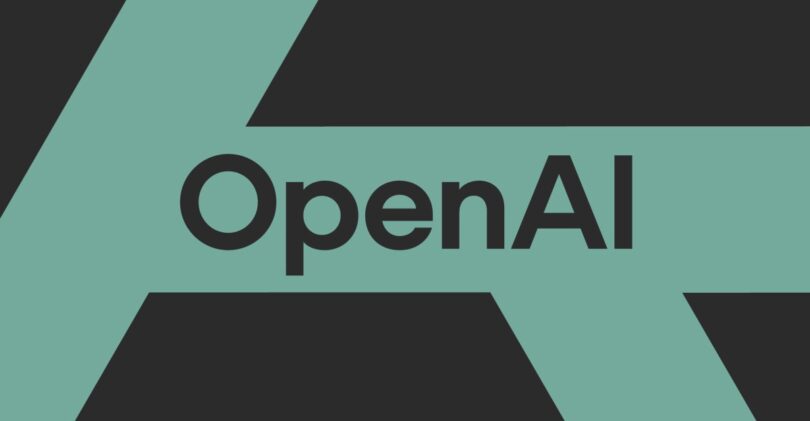Microsoft engineers are currently readying server capacity for OpenAI’s upcoming GPT-4.5 and GPT-5 models, according to a source familiar with the company’s plans. While OpenAI CEO Sam Altman acknowledged recently that GPT-4.5 will launch within a matter of weeks, I understand that Microsoft is expecting to host the new AI model as early as next week.
Codenamed Orion, GPT-4.5 is OpenAI’s next frontier model and the company’s last non-chain-of-thought model. OpenAI has already teased that GPT-4.5 could be a lot more powerful than GPT-4, but the company is also looking ahead to its GPT-5 model that will include more significant changes.
I’m told that Microsoft is expecting GPT-5 in late May, which aligns with Altman’s promise of the next-gen model arriving within a matter of months. As always, this date could shift if release plans change. We reported in October that OpenAI was originally planning to release GPT-4.5 by the end of 2024, but this was subsequently delayed to early 2025.
GPT-5 will likely be the more significant release out of the pair, and Altman has referred to it as a “system that integrates a lot of our technology.” It also includes OpenAI’s new o3 reasoning model, which the company teased during its 12 days of Christmas announcements in December.
While OpenAI released o3-mini last month, OpenAI is no longer planning to ship o3 as a standalone model, and it will instead be integrated into this GPT-5 system. This aligns with OpenAI’s goal to combine its large language models to eventually create a more capable model that could be labeled as artificial general intelligence, or AGI.
This updated GPT-5 system will also include significant improvements to the way you use ChatGPT, unifying OpenAI’s o-series and GPT-series models to reduce some of the confusion of knowing which model to pick for which task or query. “We hate the model picker as much as you do and want to return to magic unified intelligence,” said Altman in a post on X recently.
If OpenAI manages to ship GPT-5 in time for late May, it would align well with Microsoft’s Build developer conference — which starts on May 19th and will go head-to-head with Google I/O that week. Altman appeared onstage at Microsoft Build last year, just days after OpenAI released GPT-4o as a faster model that was free for all ChatGPT users.
I reported last year that OpenAI’s GPT-4o release surprised some teams at Microsoft because it undermined Microsoft’s own paid-for AI services on Azure, which include speech and translation features. The GPT-4.5 and GPT-5 releases should come as less of a surprise, and I’m expecting the software maker to be ready with Copilot updates shortly after OpenAI’s latest launch. Microsoft gave Copilot a big redesign in October, just months after OpenAI released GPT-4o.
Much like OpenAI, Microsoft has also been working to improve Copilot’s model picker so that it’s easier for users to interact with the AI assistant without having to select the AI model powering those interactions. Microsoft used to have “creative,” “balanced,” and “precise” options to help control model output, but it scrapped those with the big Copilot overhaul last year. In January, Microsoft added a “Think Deeper” button that uses OpenAI’s o1 reasoning model to answer queries.
Microsoft is also working on its own version of OpenAI’s new Operator AI agent that can do things on the web for you. Operator can interact with GUIs on webpages, allowing it to automatically take action for you. It’s a similar concept to a macro that can automate tasks or an autopilot system on aircraft that doesn’t require constant attention from a human.
I’m expecting a host of AI announcements from Microsoft over the coming months, particularly at Build in May, where it gets to present its latest technology to the developers building AI apps and products. Microsoft has been focused heavily recently on the capabilities of its AI agents, and I’ve heard that teams have been trying to reduce the costs involved to make them even more appealing to businesses.
Microsoft Build and Google I/O also overlap this year, so expect to see both companies try to one-up each other on AI announcements — particularly with GPT-5 set to debut around the same time.
- Microsoft’s Xbox AI era starts with a model that can generate gameplay. I’ve been waiting for Microsoft to start talking seriously about its AI plans for gaming, and this week, it surprised everyone with a model that can generate visuals and more. Microsoft Research has created Muse, a generative AI model that can generate a game environment based on visuals or players’ controller actions. Microsoft Gaming CEO Phil Spencer has even claimed it could be used to recreate old games “without the necessity of the original engine running on the original hardware.” This is early work at the research phase and may not lead to anything meaningful, but some game developers are unhappy Microsoft is even exploring this idea.
- Microsoft announces quantum computing breakthrough with new Majorana 1 chip. Microsoft claims it has made a key breakthrough in quantum computing this week with a research project and processor that’s based on a new material and architecture for quantum computing. The Majorana 1 processor can fit in the palm of a hand, and Microsoft says it could one day fit a million qubits — the units of information in quantum computing — on the chip. The processor is based on Majorana particles, and Microsoft claims it has created the “world’s first topoconductor,” a new type of material that can not only observe but also control Majorana particles to create more reliable qubits. We’re still a long way from quantum computing, but if Microsoft’s milestone is as big as it claims, it’s one more step to potentially solving industrial-scale problems.
- Microsoft isn’t automatically keeping you signed in to your account just yet. Last month, Microsoft started showing notifications on Outlook.com about keeping you automatically signed in to an account. The changes were going to roll out in February, meaning you’d stay signed in to a Microsoft account automatically unless you signed out. Microsoft now says these notifications and a support document were a mistake, and it’s not clear when the changes will eventually appear.
- Microsoft boss talks AGI, quantum breakthrough, and more. Microsoft CEO Satya Nadella discussed the company’s quantum breakthrough, why he doesn’t believe in AGI, and the new Muse gaming AI model in an hour-long interview this week with podcaster Dwarkesh Patel. Nadella also reflected on his 34 years at Microsoft and how it’s important for Microsoft to stay relevant as it approaches its 50-year anniversary.
- Xbox now supports larger external hard disks. The latest February Xbox dashboard update has started rolling out, and the main addition is the ability to connect hard drives of any size to your Xbox console. Previously, this was limited to 16TB, but now Xbox consoles can create partitions at a maximum of 16TB each, unlocking support for massive drives. It’s a great change if you have a huge amount of storage on hand, and it should let you keep more than a few giant Call of Duty games. But you’ll still need to copy modern Xbox Series S / X titles to the faster internal storage or the removable storage to play them.
- Copilot in Excel can now reference Office files. Copilot hasn’t been as feature-rich in Excel as it has been in other Office apps, but Microsoft is now testing a new feature that lets you reference Word, Excel, PowerPoint, and PDF files within the Excel version of its AI tool. This should make it easier to get content from the web for tables or even pull out key data from a Word document and import it into your spreadsheet.
- Microsoft isn’t removing support for a bunch of Intel CPUs. Microsoft updated its CPU support list for the 24H2 update to Windows 11 recently, and it’s causing a lot of confusion. The list no longer includes support for 8th, 9th, and 10th Gen Intel CPUs, but I understand this list isn’t accurate and will be fixed soon.
- You’ll be able to Recall emails in Outlook for Android and iOS soon. If you’ve ever accidentally sent an email early from your phone and then had to scramble to recall it from Outlook for Windows, Microsoft has a new feature just for you. Recall emails in Outlook mobile will let you retract an email from the inbox of a recipient after you’ve hit send. It will be available in test versions of Outlook for Android and iOS in late February, and it should appear for all Outlook mobile users in the coming months. Microsoft is also adding custom tables support to Word for Android and iOS soon.
- Microsoft PowerToys is getting support for installing WinGet packages. Microsoft has started teasing the ability for its PowerToys Run feature to install Windows apps. It makes use of WinGet, Microsoft’s Windows package manager, to grab the latest versions of popular Windows apps and make them easy to install from the PowerToys Run feature.
- Windows Recall is getting closer to launching. Microsoft appears to be getting closer to releasing Recall to Copilot Plus PCs. The AI-powered feature has been in preview for a few months now, and Microsoft is now preparing an update for Windows Insiders that will delete existing snapshots. That suggests there are some big underlying changes on the way and that Microsoft is getting closer to launching this publicly.
What do you think about the Xbox AI announcements this week? Drop a comment here, or you can always reach me at notepad@theverge.com if you want to discuss the Xbox AI changes in more detail. If you’ve heard about any of Microsoft’s secret projects, you can also reach me via email at notepad@theverge.com or speak to me confidentially on the Signal messaging app, where I’m tomwarren.01. I’m also tomwarren on Telegram, if you’d prefer to chat there.
Thanks for subscribing to Notepad.








